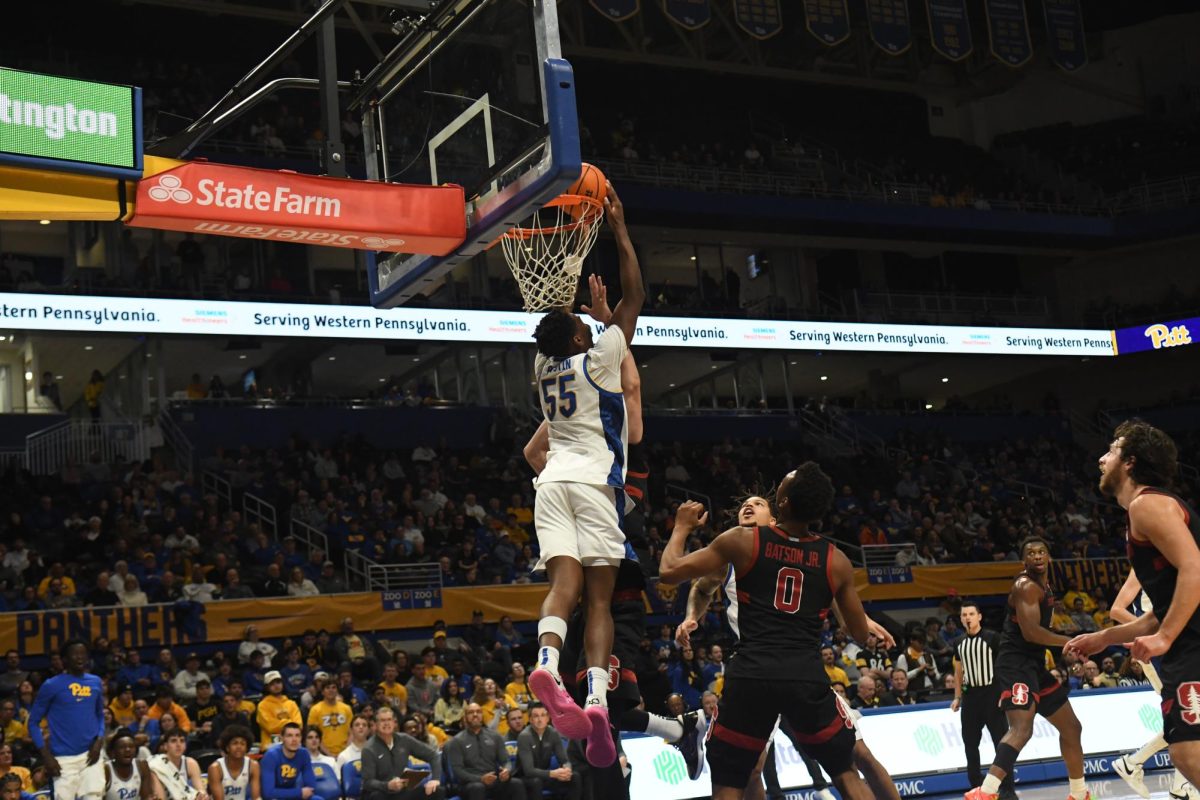Men’s rugby starts fall campaign
September 14, 2014
The football and basketball teams may have discontinued the Backyard Brawl, but one Pitt sport that has continued the rivalry against West Virginia says it is alive and well.
The Pitt men’s club rugby team, also known as the Pittsburgh Rugby Football Club (PRFC), lists its game against the Mountaineers, the last of the regular season, among its most highly anticipated of the upcoming fall season. Junior captain Matt Dunleavy says that game is one the team circles on its calendar every year.
“[The game] could decide our playoff fate,” Dunleavy, who plays center on the team, said.
Among the 15 different positions in rugby, the inside and outside centers are some of the most versatile. Both comprise the center of the defense and must be proficient in a variety of skills, such as passing and clearing out space for teammates.
The fall season for the club team began this weekend with a road trip to Michigan State, a non-conference foe. For rugby, Pitt is a member of the Keystone Conference, which is made up of two divisions: the Keystone West, which is Pitt’s and WVU’s division, and the Keystone East, which includes the likes of Rutgers and Saint Joseph’s.
For some veterans of the rugby team, this competition differs from that of a few years ago. After winning seven of the last 11 conference championships in Division II, the club moved up to Division I-AA before the 2013 season, joining the more competitive Keystone Conference.
Pitt’s inter-divisional opponents include Millersville and Shippensburg, an away game. The road games take a toll, but Dunleavy said the road trip is usually a pretty efficient one.
“For most road games, we usually leave Saturday morning and are back Saturday night,” he said. “But for further games, like Michigan State, we usually stay overnight at least one night.”
Rugby, far from the most popular sport in the United States, typically has more popularity in other countries such as Ireland and Australia. Senior accounting major Brian Chatot said the team does not want that to discourage people from joining.
Chatot, who plays second row and prop on the team, said the team doesn’t hold tryouts because so many people have never played the sport.
“I didn’t really even know what rugby was until I went to a practice freshman year, and, three years later, I’m starting and helping teach the underclassmen how to play,” he said.
The props typically position themselves at the front of the team formation, while the second row helps to push the scrum. But with 30 total players between both teams on the field at once, players often have to learn, and play, more than one position.
This year’s recruiting class has more than two dozen rookies attending regular practices, and Chatot said these less-experienced players will still get playing time to develop.
“We play two games every weekend against our opponent, an A-side game and a B-side game,” he said. “Our A-side games count towards our standings, so you need to be chosen to play in them, but our B-side games are used for teaching the less-experienced players.”
Michigan State won the game against Pitt’s A-side, 34-17. The B-side also won, 20-15.
While many on the team are looking forward to the end of the season, because of the West Virginia game, Chatot also noted another rivalry game for the team.
“We play Saint Joe’s, who won the conference last year, at home in two weeks,” he said. “That’s a big rivalry game for us because, two years ago, we beat Saint Joe’s in the conference final.”
Senior captain Jake Radziwon compared the team’s work ethic and practice schedule with most other college varsity sports, as the team practices three times a week to prepare for games.
“Like any other sport, a typical practice session covers individual skills and team strategy, usually culminating with a live scrimmage,” Radziwon, a senior who plays prop on the team, said.
The team typically practices every Tuesday, Thursday and Friday between 4:30 p.m. and 6:30 p.m. on the Cathedral Lawn. Dunleavy said that the practices work both positional and whole-team skills.
“We eventually split up between backs and forwards to work on game plan separately,” he said. “Then we usually all come together for the last half hour to scrimmage. We are starting two mandatory conditioning runs per week.”
Radziwon said the practice time and commitment to training new recruits has paid off in national tournaments. The team competed last spring in Nashville and Washington, D.C., against national opposition.
“Despite fielding a relatively young lineup, we found success against strong opponents from across the country, with many an underclassman playing quality minutes and improving his game,” Radziwon said.
With more recruits becoming interested and joining the team to play and learn the sport, Radziwon said this helps the team’s chances to contend in this and future years.
“The sky is the limit for this team,” he said. “I truly believe Pitt rugby has the talent to contend for the conference title.”


